In Planting a Church, Cultivating the Soil Matters
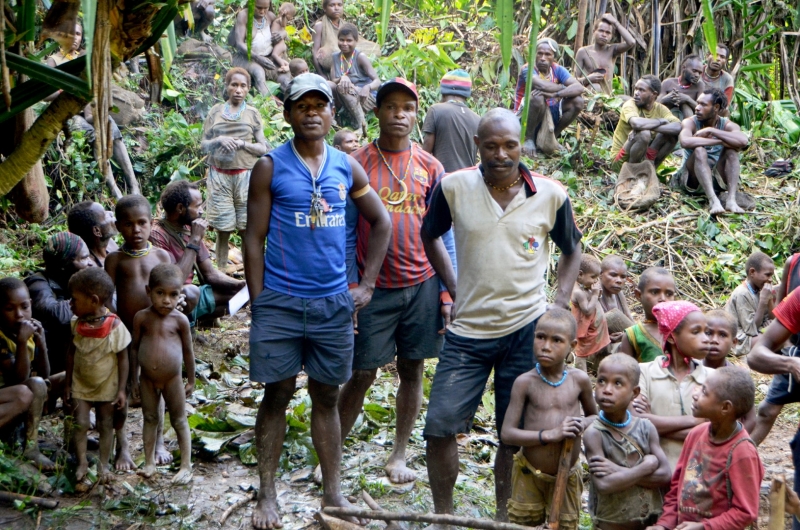
A harsh terrain
The clouds creep silently between the trees — and lower — frosting everything in a steamy dew. It’s not always like this in the land of the Moi people. Sometimes it’s sunny. Often it rains.
Copious water runs down knife-like ridges. Most will gather into rivulets, then into streams and finally into torrential rivers that cut deep gorges. A little will glom onto the clay soil and make uphill trails a slog and downhill paths slick and treacherous.
What about the level paths, you ask? There’s no such thing here.
The rugged terrain is but one of the things that have kept the Moi people isolated.
Too few, too far, too young
For generations, the Mois have lived in tiny hamlets — two or three huts dotted along a precious less-than-precipitous slope — scattered across a vast territory on the western half of the island called New Guinea.
Illness and improper hygiene kept their numbers low and claimed all but the young and strong. Part of the problem is that the Mois feared spirits who they believed live in the water. When you consider the way rivers rage in their territory, it makes sense to fear bathing there. But it was carried to extremes. The Mois did not bathe at all.
Two particular beliefs about illness add to the problem, said Stephen Crockett, who has lived and worked among them for 16 years: bloodletting and a prohibition against drinking when ill.
A unique language
NTM missionaries were the first outsiders to learn the Moi language, Stephen said. None of the Mois could speak another language.
But in spite of numerous hardships and difficulties, a group of missionaries arrived in 2000 and did more than learn the Moi language.
Stephen and his wife, Carolyn; Anderson and Lieke Panambunan; and Tim and Kathy Whatley sought to understand the Mois’ world and the way the people viewed it. They developed an alphabet, wrote down the Moi language for the first time ever and taught the Mois to read and write their own language.
They translated Bible verses, then wrote Bible lessons tailored to impact the Mois’ worldview. After years of preparation, they spent months teaching a small group of Mois from God’s Word. By that time, in 2005, Rich and Karen Brown had joined the team.
After carefully introducing the Mois to the Creator, and eventually to salvation through Jesus Christ, the missionaries not only heard seven of the eight people talk about faith in Jesus, but saw it in their lives. And after Rich spent months working with the eighth, Tepaiye, he also understood and his life caught fire for Christ as well.
“The change in the lives of these eight people spoke volumes to the other Mois,” Stephen said. “It wasn’t long before other Mois were asking to be taught as well. One man in particular, while asking us to teach him, picked up a leaf off the ground and crumbled it in his hand while saying, ‘This is what my heart is like because I do not know the Creator’s talk.’ ”
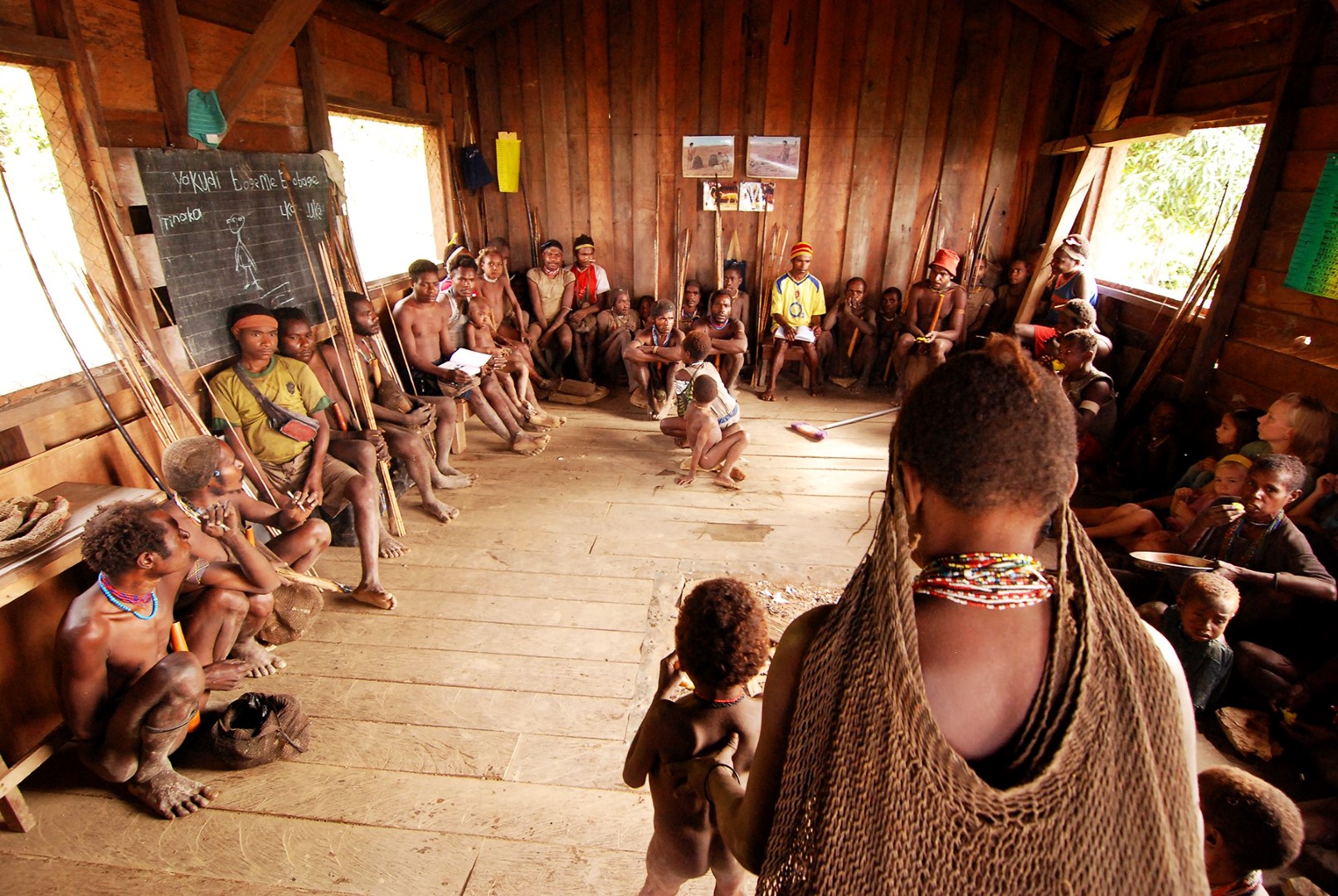
A step back
For many, this would be a time to hit the accelerator pedal.
Instead, the team took time to evaluate their progress and to compare it to the biblical goal of making disciples and establishing a thriving church. And they saw a problem.
“Two of the eight were more middle-aged Moi,” Stephen said, “and they were having a hard time letting go of some superstitions and fear of evil spirits.”
The team took a fresh look at their foundational lessons, from Creation to Christ. Though there are 70 lessons in the series, it’s normal for teams to skip some because they will not communicate well to a particular people group. The Moi team had taught 43 lessons.
Now they prepared 64 lessons.
“We realized that we needed to slow down our rate of information for the second group as well as hit hard with typical Moi bluntness the things that we saw the first group struggling with,” Stephen said.
That willingness to evaluate and, if necessary, adjust or even slow down is “one the things I admire about them,” said Mike Henderson.
Mike, part of the team God used to establish a thriving church among the Aziana people of Papua New Guinea, has been the church planting consultant to the Moi missionary team from the start. And from the start, he saw their challenges.
A monolingual people, a young people and an extremely isolated people, the Mois were “not on the American time schedule,” Mike said.
Recognizing that, the team adjusted and taught again.
This time, God used the changed lives of those eight Mois to bring about 60 people to the lessons. And He used the expanded lessons to build a solid foundation in a number of Moi lives.
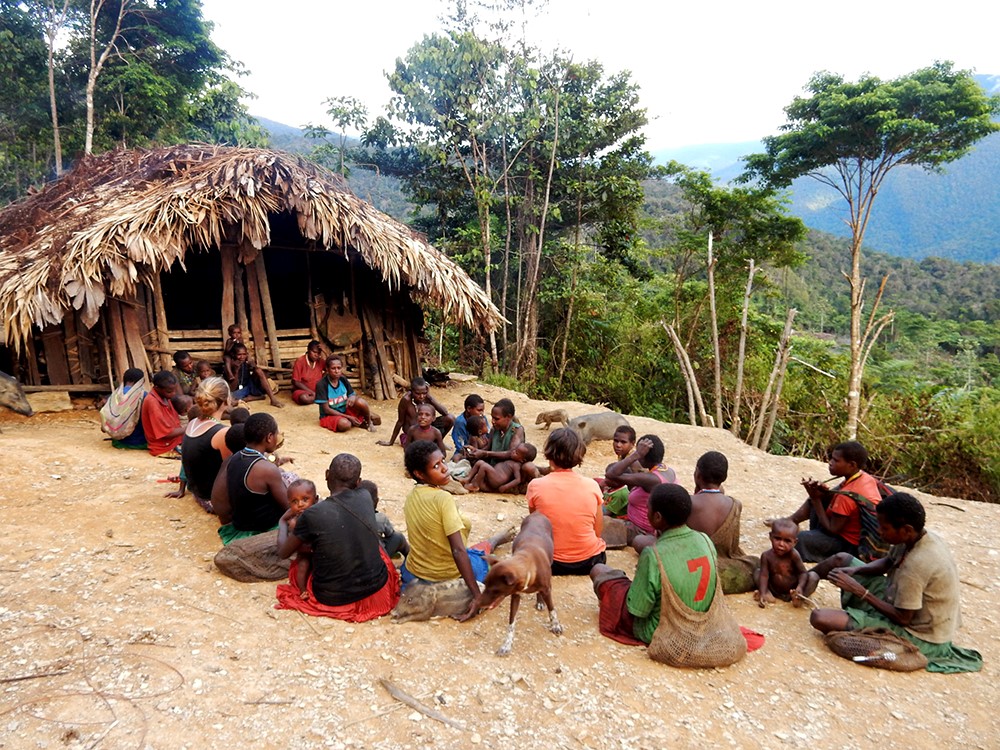
At that point, the missionaries focused on the long and difficult process of discipling the new believers. “It was slow but it was developing,” Mike said. “They [the missionaries] weren’t antsy to go faster, which I appreciated.”
Mike said the time spent on discipleship allowed the missionaries to tell the believers, when the time came to teach again, “We aren’t going to do the teaching. This isn’t our job. Our job is to help you teach them.”
About a half-dozen Mois took the challenge and found God as faithful to them as He was to the missionaries as they taught the third round of foundational lessons in 2010. That encouraged others, and eventually the fledgling Moi church had some dozen Bible teachers presenting God’s Word.
The church needs leaders
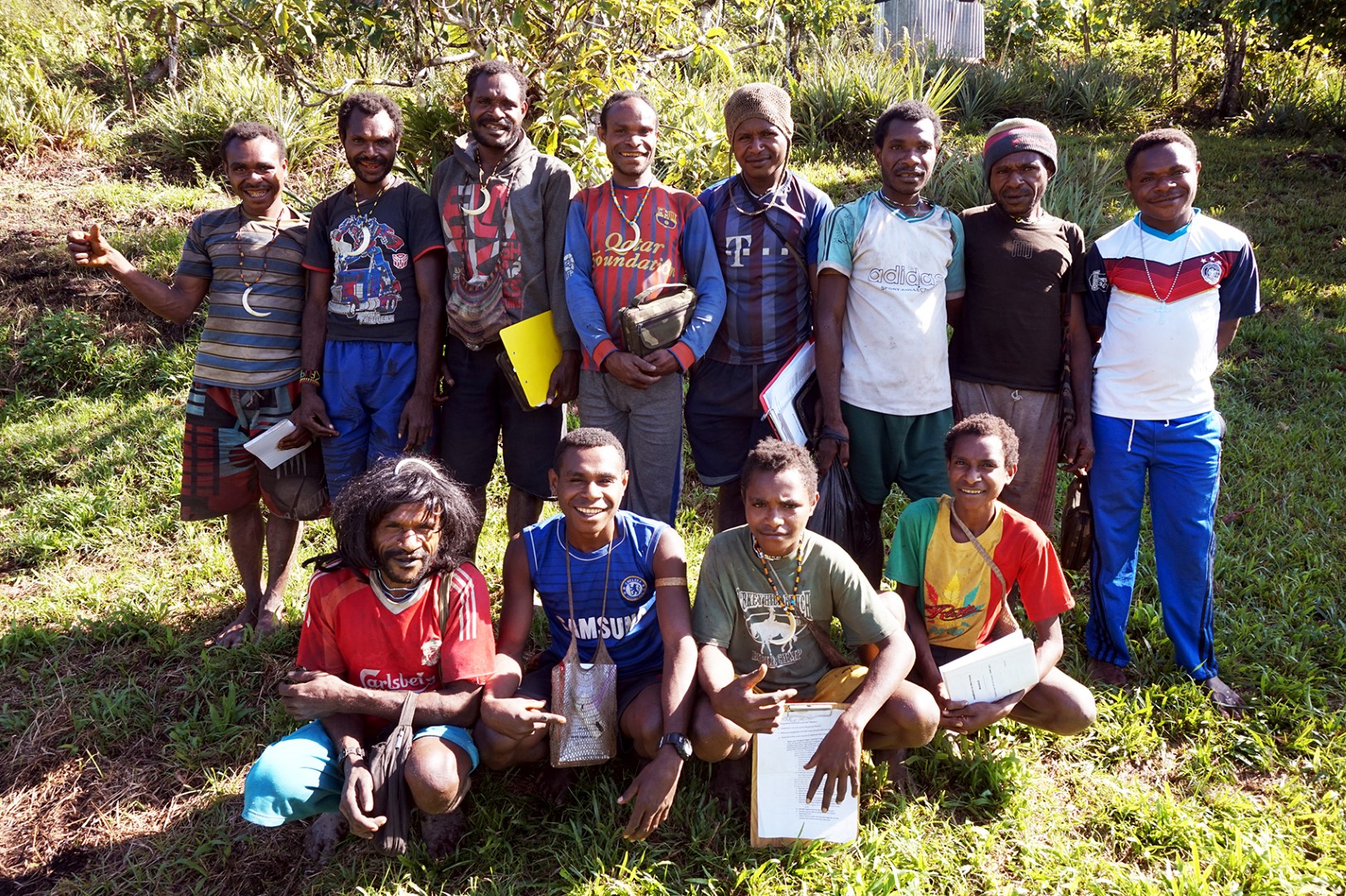
From among these men who stepped out would come the leaders of the Moi church. But that would take years and not just because of spiritual immaturity.
At that point, “the only ones who were really positioned for … future leadership were young men,” said Kevin Miles, a member of the leadership team that oversees the missionaries to the Moi people. “Teens even. With that reality, it was necessary for the team to really take a ‘long view’ of it. They were great young guys, but just needed time to grow and mature generally as well as spiritually.
“The church needs men leading it who are godly and gifted in shepherding the work there. Men who are Moi to the core and can appropriately discern where the nebulous line is between Moi cultural factors and biblical truth and values. In many cases those things can coexist and represent the amazing diversity in the Body of Christ, and at other times they cannot, and Moi culture must be superseded by the Truth of God’s Word.”
Finally, early in 2013, “we were starting to consider a couple of men as potential elders,” said Stephen. “They had been faithfully serving their fellow Mois right alongside us, and we felt like maybe the time had come.”
The two “were able to teach God’s Word and willing to go out of their way to serve others and care for them,” Rich said. One was Tepaiye, the man in whom Rich invested months ensuring he understood salvation.
When Stephen and Rich approached them, “they were both very nervous about the whole idea,” Rich said. “They knew it was a very great weight and responsibility, which is what you want.”
Both men took time to pray and consider the position of elder, and both came back and said they would do it if that was what the Lord wanted.
Not so fast
Those plans were interrupted at 11:30 in the pitch black of a night with no artificial light for miles, when someone hammered on Rich and Karen’s door.
Rich opened it to see one of the two men holding an arrow to his chest, the head pointing at his heart. He was trembling, sweating — distraught. He related to Rich that he had propositioned a married woman.
The woman, a believer, told the man, “There’s no way we could do this. You’re a child of God, and I’m a child of God. That would be wrong.” She added, “If you don’t go tell Stephen and Rich, I’m going to tell them.”
Rich calmed him down, got him to put down the arrow and sent him home so they could talk with clearer heads in the morning. Unfortunately, in the morning he was already minimizing what he had done. But Stephen, Rich and the Moi Bible teachers would not let it pass. “Eventually,” Rich said, “he wanted to take full responsibility for what he had done.”
“It was an incredibly sobering thing for us,” Rich added.
“The Lord used [that] to show us that they were not quite ready yet,” Stephen said. “One of the things you experience in an adolescent church: one minute they’re acting so grown up and mature, and the next minute they’re acting like they’re back in junior high.”
Signs of hope
Meanwhile, two of the Bible teachers, Deoma and Bumani, were “tremendous examples for the church,” Rich said. Bumani was used of the Lord to plant a church in another village, and Deoma’s heart for discipleship led him to teach in a number of different places.
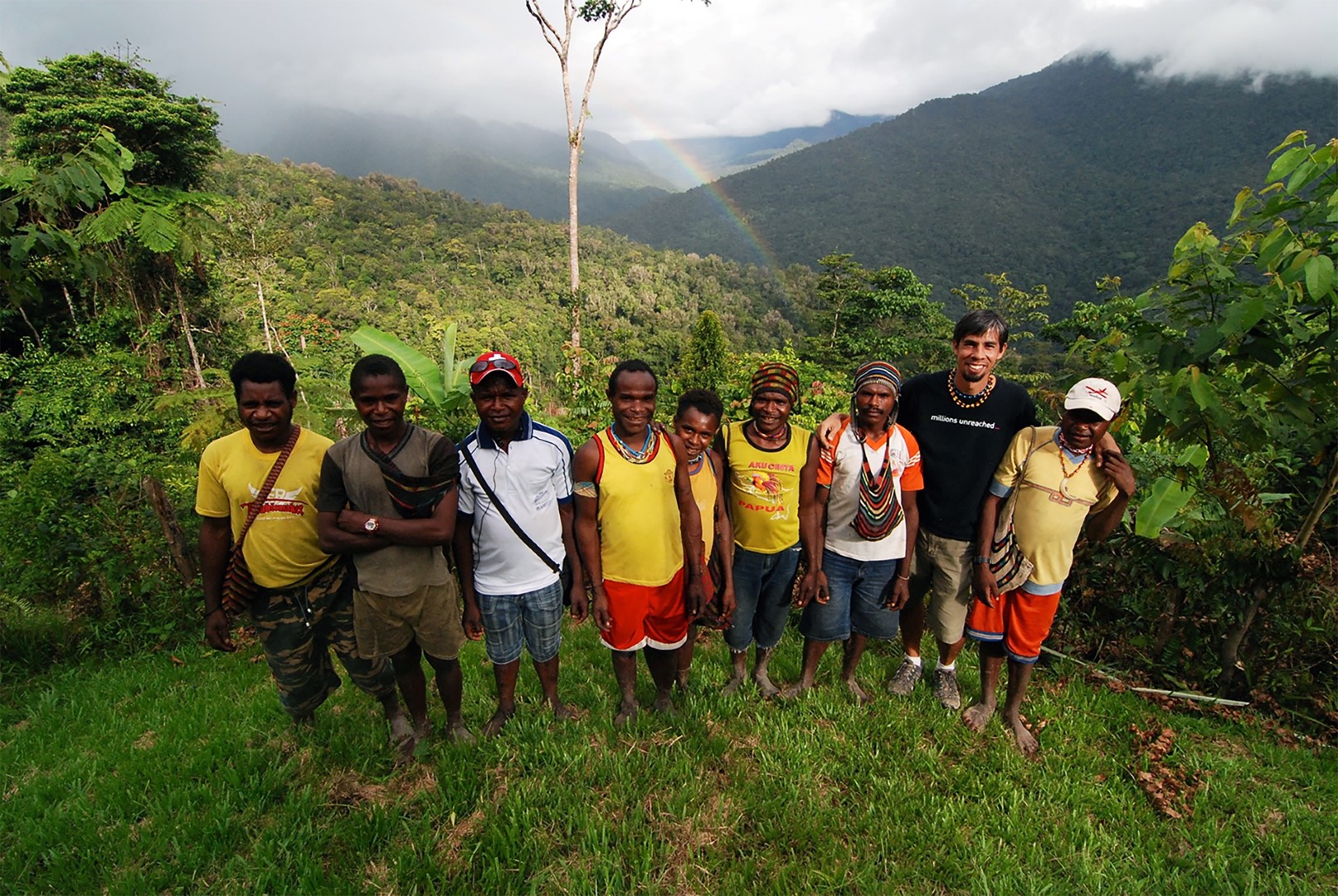
On top of that, “they were facing difficulties — Bumani in particular — and stuck it out. … There were many challenges but they were faithful.”
Tepaiye stepped up when Stephen and his wife, Carolyn, were about to leave for home assignment in May 2014. At a church meeting, he called on the believers to gather around Stephen and Carolyn to lay hands on them, pray for them and commit them to the Lord.
“I remember feeling the weight of those hands and looking at the dirty, mud-stained, calloused feet surrounding me, legs covered with ulcers, and thinking that this was the most beautiful and moving experience in the world,” Stephen said.
“Tepaiye showed real sensitivity and maturity that day in leading the church to come before the Lord, to step out and do something a bit different.”
When Rich and his family left in October 2014, the Bible teachers faithfully continued to teach and feed the believers. “They were growing in their ability and their comfort in being able to handle things,” Rich said.
Three elders appointed
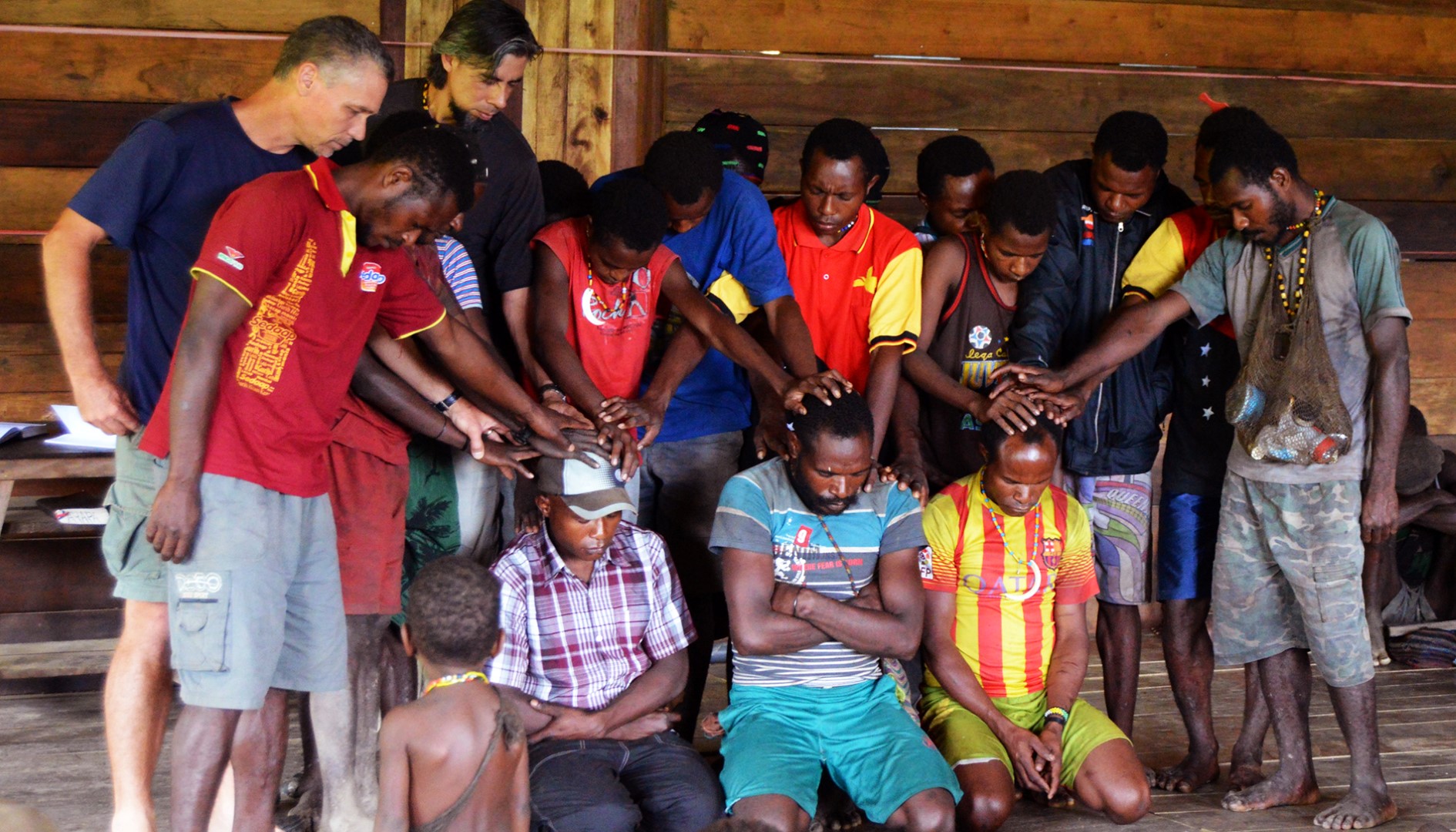
The whole time, the Moi believers knew from Bible studies what leaders were supposed to be like. They were praying for God to raise up the right men from among them, as were Stephen and Rich.
When Rich returned, he began asking believers who they thought God was raising up to be elders.
“Deoma, Bumani and Tepaiye — those names would consistently come up,” Rich said. That was in line with what he was seeing, and he was greatly encouraged.
Stephen also returned, and agreed. He saw them teaching twice a day, faithfully and well. He observed them dealing with sin issues in the church. He saw them leading. He saw that “these young men [were] demonstrating elder qualities and [were] in fact for all practical purposes functioning as elders.”
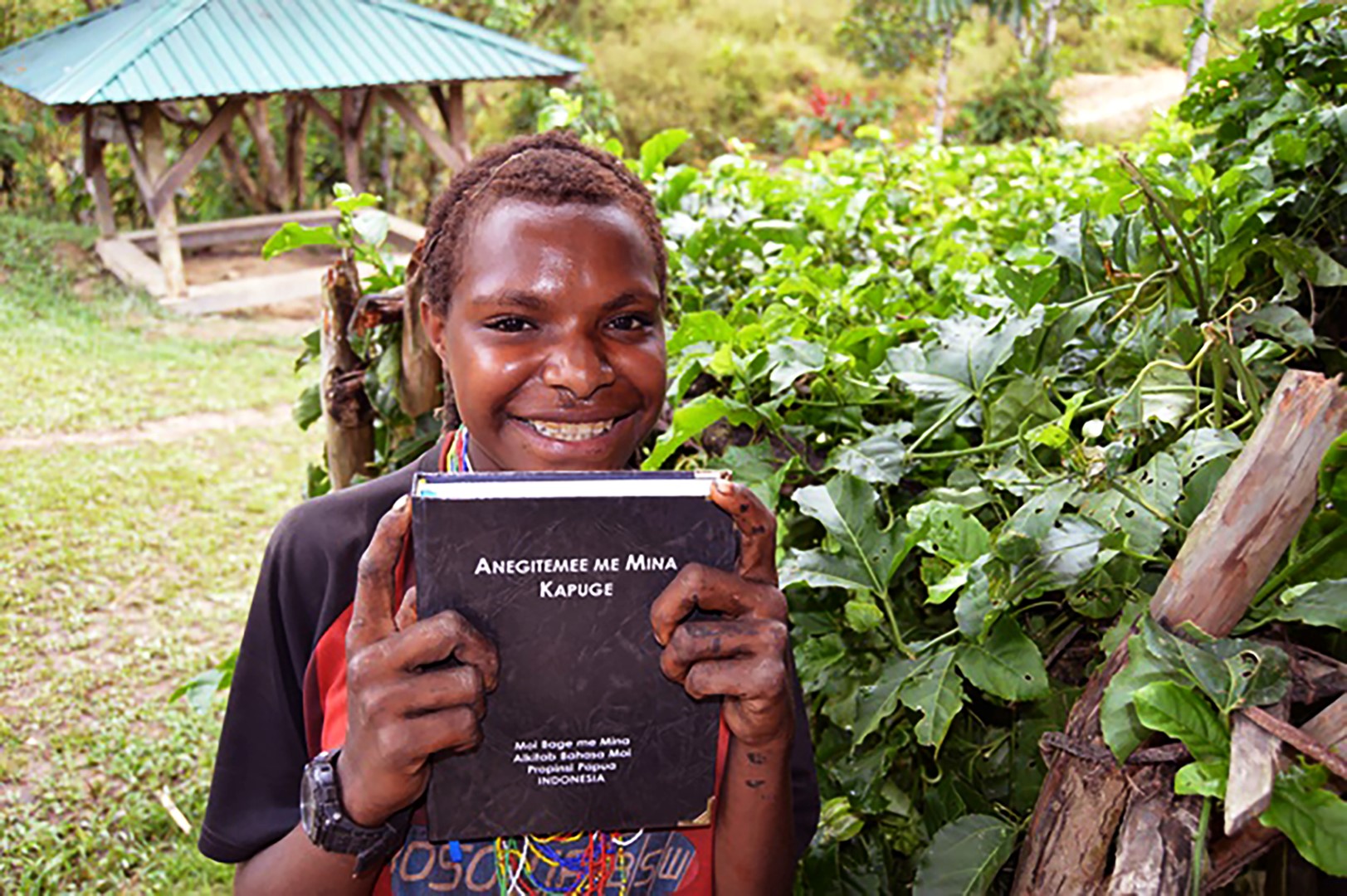
He also studied what the Bible said about leaders, and he realized “that… we need these men to be growing and taking on more and more responsibility, partnering in increasing amounts with us if we are truly to see this work done.”
Rich and Stephen approached the three men about becoming elders. Since it was common in Moi culture for men to leave for long blocks of time and ignore family responsibilities, they spoke about that in typically Moi fashion: bluntly.
The three responded with sober introspection to the challenge of being elders. They all felt they could trust the Lord to enable them to take on the responsibilities. Bumani even gave his house and garden to the people in the village where he was living in order to move to a more central location for shepherding the church.
Bumani, Deoma and Tepaiye were ordained as elders of the Moi church last fall.
“God is indeed building His church, and He is bringing together the right group of men who will be able to lead and grow with the Moi church to maturity,” Stephen said.
Awayo's Story
For generations, the Moi people lived in fear of the spirits and died without hope. When people came with a new message, Awayo declined to hear it … until he saw the changes in the lives of those who had listened. Watch the video:
